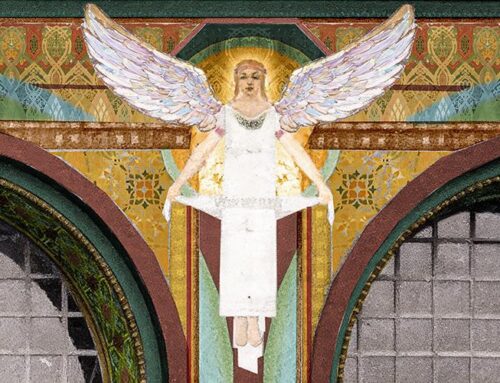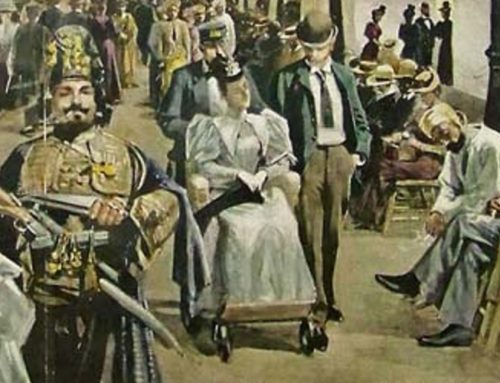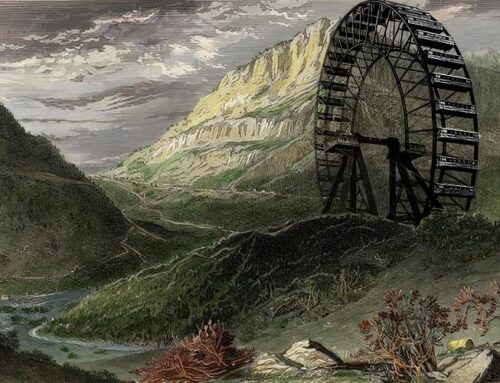“It is not likely that there will ever again be any distinction so artificial as that of sex between the skill of men and women–unlikely that there will ever again be a woman’s department in any World’s Fair.” –Virginia Meredith, from a speech given at the Indiana Union of Literary Clubs meeting, May 1892. [reprinted in Whitford, et al. The Queen of American Agriculture: A Biography of Virginia Claypool Meredith]

Virginia Claypool Meredith, Vice President of the Board of Lady Managers (BLM). [Image from The Review of Reviews, May 1893.]
As a nationally known farmer, expert in livestock management, and public speaker and writer on agricultural science, she earned the title “The Queen of American Agriculture.” Virginia Claypool Meredith (1848–1936) served as the state of Indiana’s representative to the Board of Lady Managers of the 1893 World’s Columbian Exposition. She rose to the position of a vice president of the Board and chaired its awards committee, in charge more than 100 judges from around the world.
Meredith’s active involvement in the 1893 World’s Fair “necessitated a stay of several years in Chicago, but she came home every two weeks during all that time to look after her farm and to give directions concerning its management,” explained one biographer. “Throughout those years, she was one of the busiest women in the Middle West.” [Bartholomew, 54]
This profile of Meredith comes from the June 1893 issue of World’s Columbian Exposition Illustrated:
MRS. VIRGINIA CLAYPOOL MEREDITH
Mrs. Virginia Meredith has been and still is one of the integral factors of the Woman’s Board of the Columbian Exposition.
From its inception to the present time Mrs. Meredith has shown strong executive characteristics, and one glance at the lady’s forceful features and remarkable physique verifies the statement that she makes when she says “I am a descendent of Oliver Cromwell,” and one feels that her unflinching purpose and strong determination comes from an inherited backing.
Mrs. Meredith is thoroughly practical and since the death of her husband, has carried on the business of farming in which she had for many years been engaged, and she has added to her domain a great deal of valuable land. Her personal supervision, combined with the moat improved methods of farming, has placed her among the most successful farmers.
As a women farmer she stands pre-eminent, while her knowledge and methods of stockbreeding and stock raising are widely known and she is quoted as putting into the market, Short-horn cattle, South-down sheep and trotting horses.
Mrs. Meredith’s home is near Cambridge City, Indiana, and is the old home of Gen. Meredith, who led the famous Iron Brigade at the battle of Gettysburg.
As a parliamentarian Mrs. Meredith has no superior, and also as chairman of the executive committee of the Woman’s Board she has framed many important resolutions and successfully carried them through. Her judgment has been sound and her principles fixed.
The original Act of Congress reads: “Said Board may appoint one or more members of all committees authorized to award prizes, for exhibits which may be produced in whole or in part by female labor.” Mrs. Meredith was instrumental in having the following clause made effective by having inserted in the application blanks for space the question which each exhibiter was required to answer: “Was this exhibit made in part or in whole by woman’s work?” This application blank has determined the extent to which women judges will be appointed and also serves to furnish information as a guide for these judges in their awards. Mrs. Meredith’s work has been strong, faithful and conscientious.
The Columbian Exposition has been described as a “defining moment” in the life of Virginia Meredith. [Whitford, 131] During the Fair, she published a pamphlet, A Monograph on the Live Stock of the State of Indiana.
Meredith also contributed a description of “The Work of the Board of Lady Managers” to an article on “Woman’s Part at the World’s Fair” from the May 1893 issue of The Review of Reviews, reprinted here.
In 2014, Meredith’s hometown of Cambridge City, Indiana, honored her with an Indiana state historical marker. Placed near 512 E. Main St. (U.S. 40), the marker notes Meredith’s role in the 1893 World’s Fair.

The Indiana state historical marker for Virginia Claypool Meredith in Cambridge City, Indiana.
SOURCES
Bartholomew, H. S. K. “Virginia C. Meredith” Indiana Magazine of History 1939. 35 (1), 49–57.
“Mrs. Virginia Claypool Meredith” World’s Columbian Exposition Illustrated June 1893, p. 95.
Whitford, Fred; Martin, Andrew G.; Mattheis, Phyllis The Queen of American Agriculture: A Biography of Virginia Claypool Meredith. Purdue University Press, 2008.






Leave A Comment